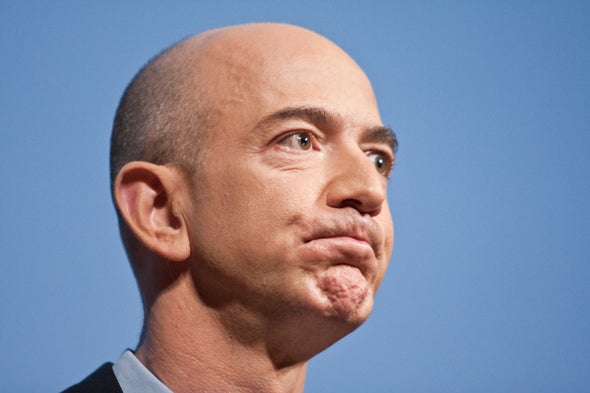Nobel laureates, a new congresswoman and others urge raising taxes on the ultrawealthy to counter surging inequality
On February 18, 2019, John Horgan writes on Scientific American:

In 2015 I attended a workshop on political polarization with an eclectic group of scholars and activists. We swapped ideas on resolving battles over climate change, inequality, abortion and gay rights. One obstacle to compromise, a psychologist said, is that many Americans have a visceral, emotional reaction to issues like homosexuality.
I have a visceral, emotion reaction to inequality, I replied. It sickens me that some Americans have billions while others barely have enough to eat. An economist derided my attitude as typical left-wing irrationality. Inequality isn’t the problem, he said, poverty is the problem, and we shouldn’t try to solve it by taking more from the rich.
I felt chastened. But a flurry of recent articles—with headlines like “Abolish Billionaires” and “The Economics of Soaking the Rich”—argues that we should be appalled by the immense gap between the poor and rich. The proliferation of billionaires shows that capitalism is malfunctioning and in need of reforms, including higher taxes on the ultra-wealthy.
One vocal billionaire-basher is Alexandria Ocasio-Cortez, a newly elected Congresswoman from New York and self-identified democratic socialist. “I’m not saying that Bill Gates or Warren Buffet are immoral,” she said recently, “but a system that allows billionaires to exist when there are parts of Alabama where people are still getting ringworm because they don’t have access to public health is wrong.”
A report from the anti-poverty organization Oxfam provides a global, historical perspective on inequality. Maximum tax rates in the richest countries fell from an average of 62 percent in 1970 to 38 percent in 2013, and inequality has surged. The number of billionaires has doubled over the past decade to 2,208. The collective wealth of the 26 richest people now equals that of the 3.8 billion poorest, whose total wealth fell last year by 11 percent.
In short, the rich are getting richer and the poor, at least lately, poorer. “We need to transform our economies to deliver universal health, education and other public services,” Oxfam states. “To make this possible, the richest people and corporations should pay their fair share of tax.”
Ocasio-Cortez has proposed raising the federal tax rate for ultra-wealthy Americans to 70 percent, almost double the current maximum federal tax on income. The so-called marginal tax would apply to annual income above $10 million. Presidential candidates Elizabeth Warren and Bernie Sanders have called for higher taxes on assets as well as income of the ultra-rich.
Paul Krugman, a Nobel laureate in economics, agrees on the need for such taxes. The 70-percent tax proposal of Ocasio-Cortez, he writes in his New York Times column, is based on analyses by economist Peter Diamond, a Nobel laureate, and Christina Romer, former head of President Obama’s Council of Economic Advisers.
The analyses, Krugman explains, are based on “the common-sense notion that an extra dollar is worth a lot less in satisfaction to people with very high incomes than to those with low incomes. Give a family with an annual income of $20,000 an extra $1,000 and it will make a big difference to their lives. Give a guy who makes $1 million an extra thousand and he’ll barely notice it.”
This is the reasoning behind progressive tax rates, which rise along with income. Raising tax rates too high might discourage some people from being more productive, resulting in a net loss of tax revenue. Balancing these factors, Diamond and Romer recommend maximum marginal tax rates of 73 and 80 percent, respectively.
Krugman rejects the claim that high taxes hurt the economy. Maximum tax rates reached 90 percent in the late 1950s, and they remained at 70 percent as recently as the early 1980s before plummeting during the Reagan administration. The U.S. economy “did just fine” during these periods, Krugman says. “Since then tax rates have come way down, and if anything the economy has done less well.”

